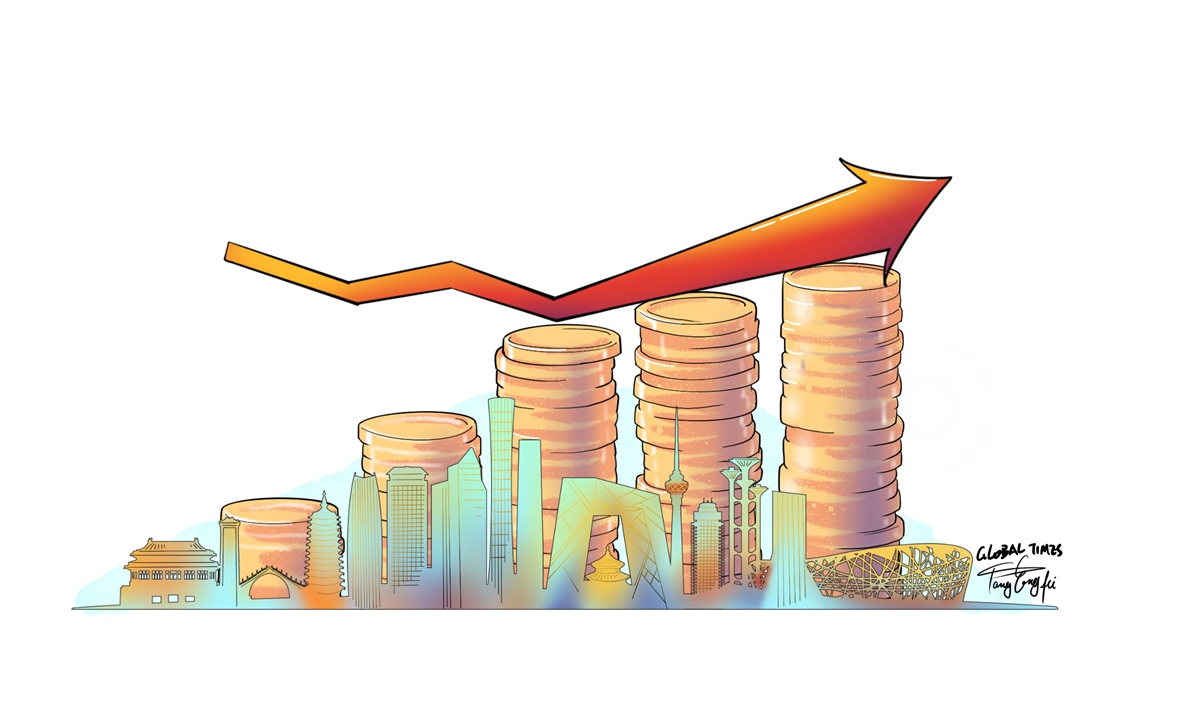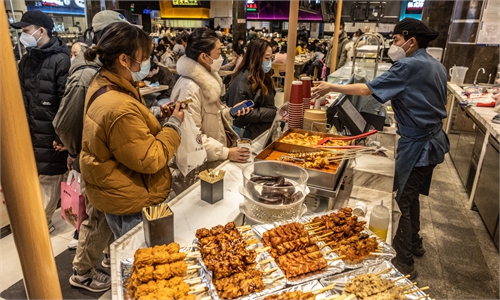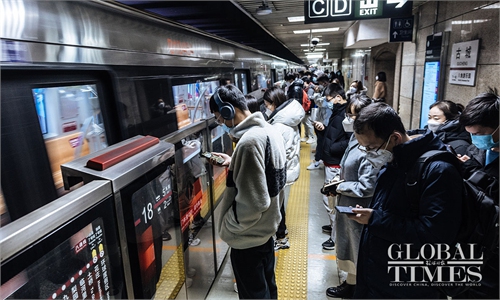
Illustration: Tang Tengfei/Global Times
After China further adjusted and optimized its COVID-19 responses, its economy has started emerging from the adverse impacts of the pandemic. Of course, it may be not smooth sailing ahead, and in the process, some in the West even hope China will encounter setbacks and hurdles, especially when the rising infections make some people stay at home and therefore affect consumption over the short term. It is normal there are doubters in the West, because their arrogance leads to a lack of understanding of China's economic resilience.Among the discussions surrounding how much vitality China's further optimization of COVID-19 responses will unleash for the economy, the city of Beijing has become a focus of media attention. As an interesting comparison, Bloomberg said the 3.6 million trips made on the Beijing subway last Thursday were 70 percent below the level on the same day in 2019, and traffic congestion on the city's streets was only 30 percent of the level in January 2021. However, only a few days later, media reports said moderate traffic congestion fell in Beijing on Monday, and the city was getting busy again after reaching the peak level of infections.
There is no need to deny that although the current Omicron variant is much weaker than previous strains seen in 2020 and 2021, Chinese cities, including Beijing, are facing a tough battle against the virus, but it should be pointed out that the Chinese economy is expected to pay a much smaller price than some Western countries did because they have chosen to "live with" the virus from the very beginning. Currently, the virus has become milder and less fatal. Although some have already fallen ill, Beijing and other Chinese cities have been battling the virus in what so far has been a calm and orderly manner. It is no surprise that some Western media outlets want to exaggerate the impact of the virus on the Chinese economy and people's livelihoods and spread panic and pessimism, but economic data will prove them wrong.
As more people in Beijing are recovering from Omicron-induced symptoms like fever and cough, they cannot wait to go outdoors. Foot traffic at some major shopping malls has begun to surge over the past few days. More practitioners in catering, tourism and other service industries have expressed their positivity on the economic outlook and are seeing the upcoming New Year holiday as what could be the first opportunity for pent-up consumption demand to explode.
For example, data from online travel platform Trip.com showed last week that the number of hotel room bookings from Beijing tourists for Sanya, South China's Hainan Province, which just emerged from a recent COVID-19 outbreak, have increased by 30 percent over the same period last year and by 28 percent over the previous week, according to media reports.
Since China announced optimized anti-COVID epidemic response measures, some Chinese cities have seen a decrease in people leaving their homes as they try to avoid going out in face of infection surge, but what has happened in Beijing suggests such a situation won't last long and its impacts on the economy is partial, phased and temporary.
We believe people in more Chinese cities will resume their normal life after infections peak and the economy will gradually emerge from the adverse impacts of the pandemic. It should be pointed out that some economists have already expected high growth for the Chinese economy in 2023. Wei Jianguo, former vice minister of the Ministry of Commerce, said recently that China's economy will lead the world with 8 percent of growth next year.
China's economic resilience has been fully demonstrated amid the global economic downturn caused by the pandemic over the past few years. Now, we have reasons to believe that despite some challenges ahead, the Chinese economy will eventually emerge from the cloud of COVID-19 pandemic.
The author is a reporter with the Global Times. bizopinion@globaltimes.com.cn


